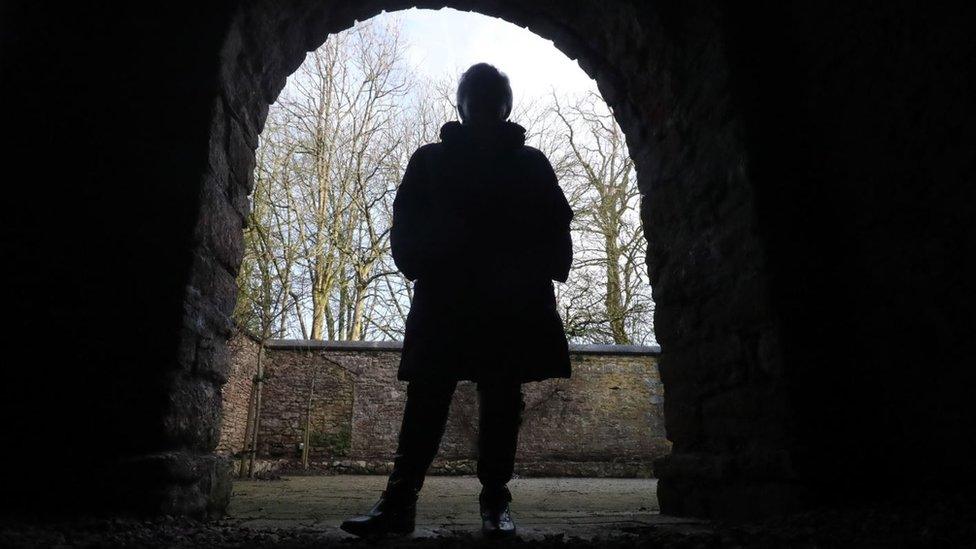NI mother and baby homes survivors 'let down and forgotten'
- Published
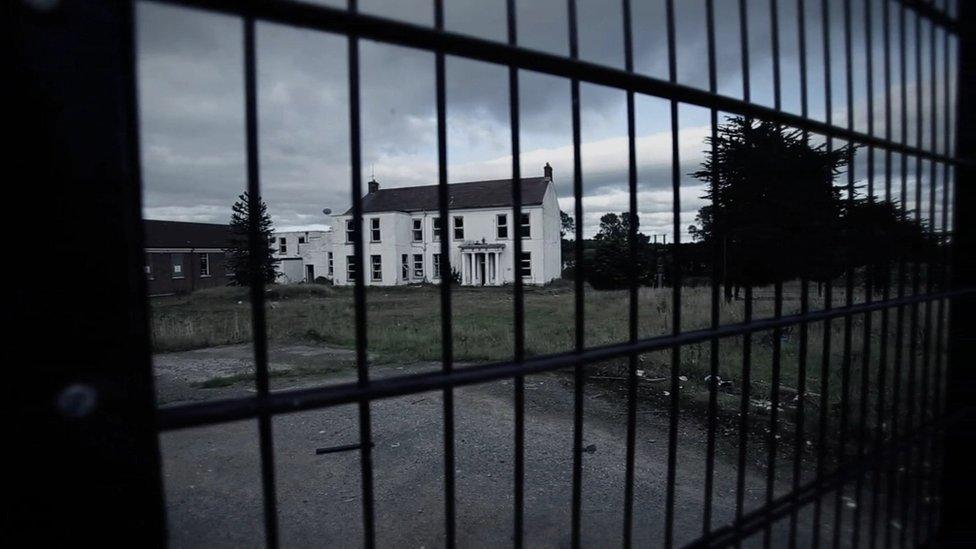
The Marianvale home in Newry was one of Northern Ireland's mother-and-baby homes
Northern Ireland's mother and baby home survivors say they feel "completely let down" by the government two years after experts backed a public inquiry into their treatment in the institutions.
Adele Johnston, of Birthmothers and their Children for Justice NI, said members feel "forgotten about".
As well as an inquiry, immediate redress payments to survivors were recommended in October 2021.
The proposals were published in a report by the Truth Recovery Panel.
A month later, in a move described as "momentous" by survivors, the Northern Ireland Executive agreed to implement all of the panel's recommendations.
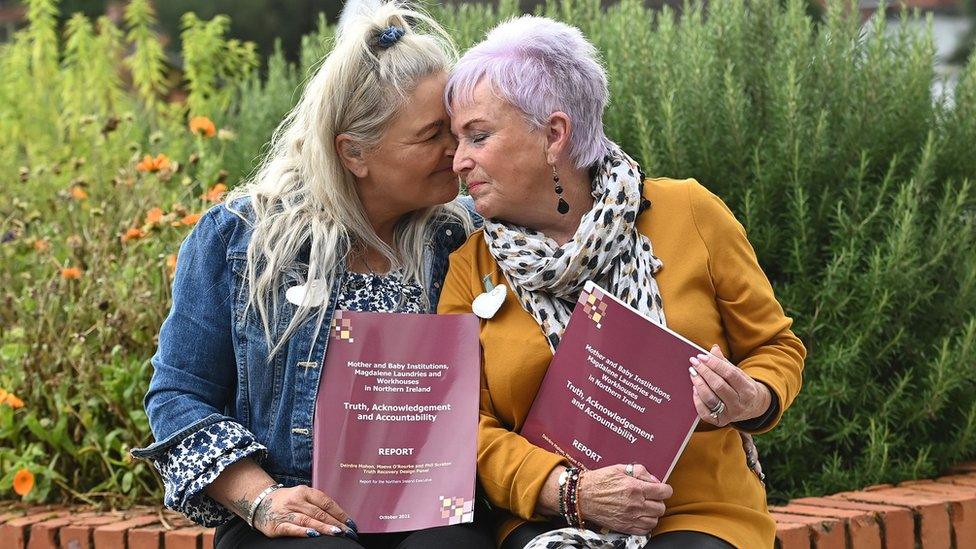
Survivors Adele Johnstone (right) and Mechelle Dillon welcomed the panel's report in 2021
At the time, then Deputy First Minister Michelle O'Neill told the assembly all steps would be put in place "as quickly as possible", including redress payments to survivors.
However, three months later, the Northern Ireland Executive collapsed after the DUP withdrew as part of its boycott over post-Brexit trade arrangements for Northern Ireland.
Power-sharing government has not returned since.
Ms Johnston said that since Ms O'Neill's announcement, survivors have spent two years "treading water and getting nowhere".
'One prevarication after another'
Speaking to BBC News NI, she said: "Where is this promised inquiry two years on?
"There were so many promises made in October 2021 and we were so full of hope that things were finally going to change. Now here we are, two years later, without even the terms of reference for an inquiry and not a penny of redress.
"We know it has been hampered by the political situation, but there needs to be a Plan B.
"It's one prevarication after another and we feel let down by everyone, from the UK government and Executive Office, to the politicians and civil servants."
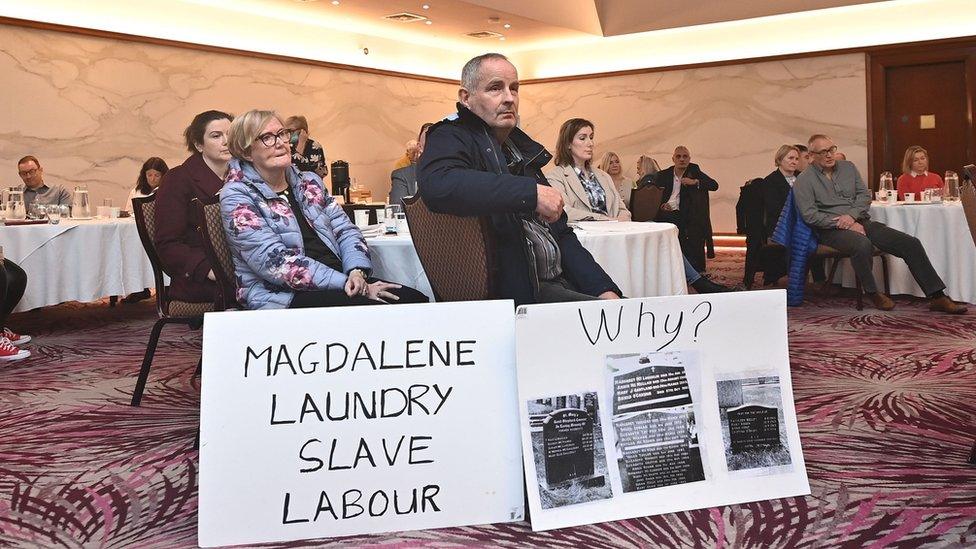
Survivors of mother-and-baby homes and Magdalene laundries gathered at the Stormont Hotel two years ago to hear details of the Truth Recovery Panel report
In a statement, a spokesperson for the Executive Office said it was "working to deliver the executive's commitment to victims and survivors of mother and baby homes, Magdalene laundries and workhouses, implementing the recommendations of the Truth Recovery Design Panel".
It said a "comprehensive range of support services has been put in place, which people affected have been able to access".
'More needed than tea and sympathy'
However, Barbara McCann, who was adopted from Marianvale mother and baby home in Newry in 1962, said that more is needed.
"Counselling and other support services are great and, of course, they're to be welcomed, but we need more than tea and sympathy.
"After all these years of campaigning, we need the statutory inquiry that was promised. The research has been done, we have read the reports, survivors need action now, before it's too late - many of them are frail and elderly - and how many aren't even about now since this research began?"
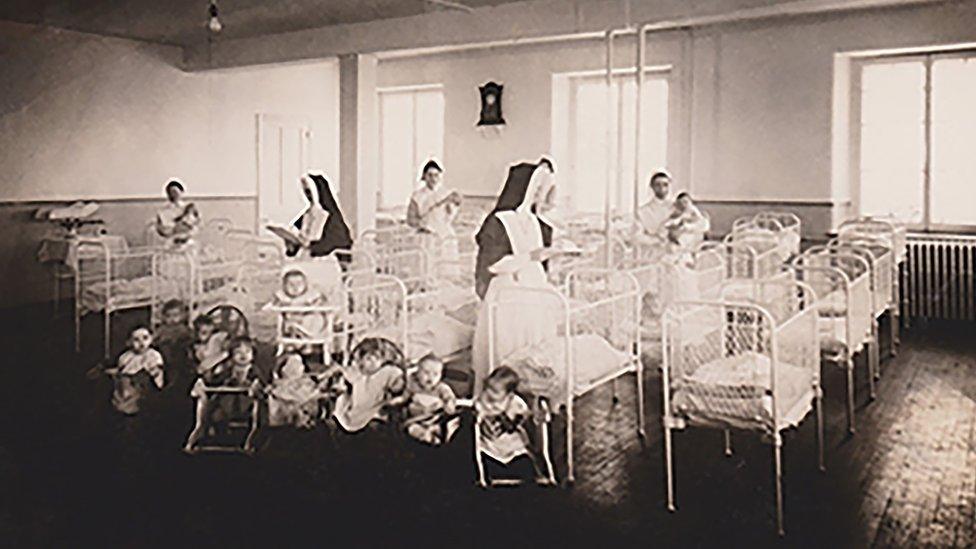
A Magdalene laundry in the Republic of Ireland
In May this year, the Executive Office appointed a 10-person independent panel to push forward the work of the Truth Recovery Programme., external
It said this panel, which will take testimony from survivors and others involved with the institutions, will shape the future public inquiry.
"Central to this work is engagement with victims and survivors, including through a monthly consultation forum which has met on 24 occasions," it said.
But Ms McCann, who now lives in Newcastle, County Down, said progress towards an inquiry and redress has been so slow, she fears many survivors will die "before they see any kind of justice for what happened to them".
Ms Johnson agreed: "All the time we are hearing of our members getting ill or dying and it feels like we have no hope to offer them now.
"After all the optimism that we felt in 2021, many now feel their voices are being silenced again."
The Executive Office statement added: "Establishment of a public inquiry and redress scheme will require legislation. The Executive Office has been consulting victims and survivors on the approach to this and it is planned to consult publicly early in the New Year."
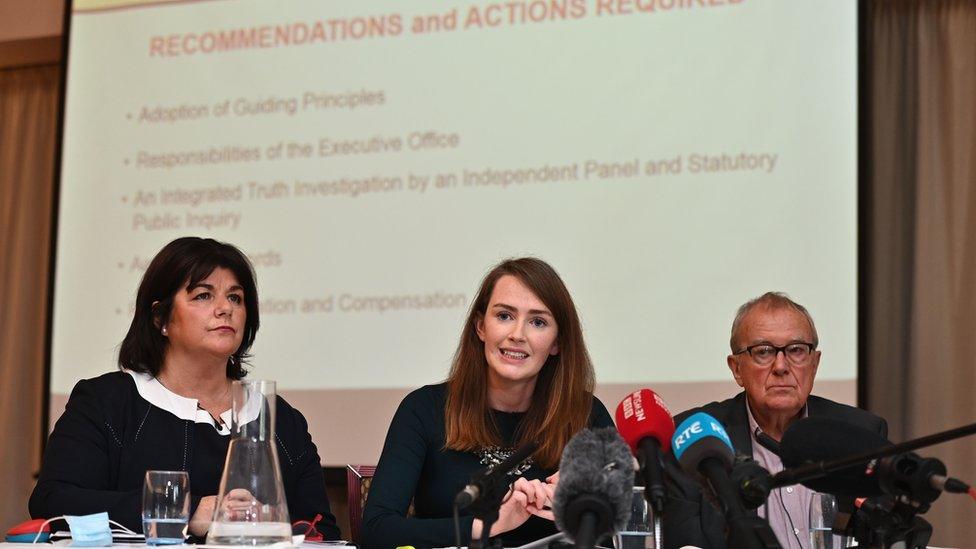
A three-person panel made a series of recommendations, which were later backed by the executive
Many of them gave testimony about being detained against their will, used for unpaid labour and forced to give up babies for adoption.
It emailed the secretary of state, the head of the Northern Ireland Civil Service and a number of political representatives, saying they had become "disenfranchised" with the lack of a statutory inquiry into the institutions.
Related topics
- Published5 October 2021
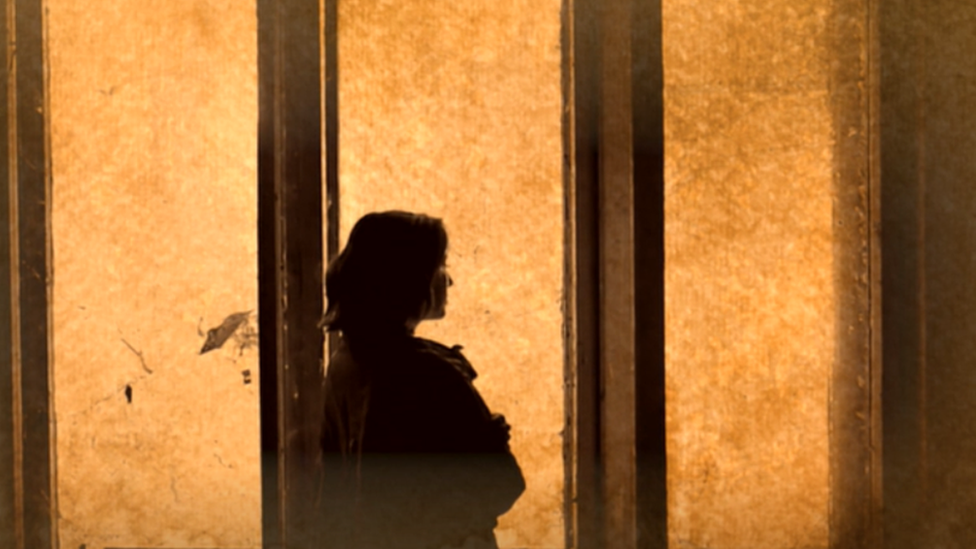
- Published5 October 2021
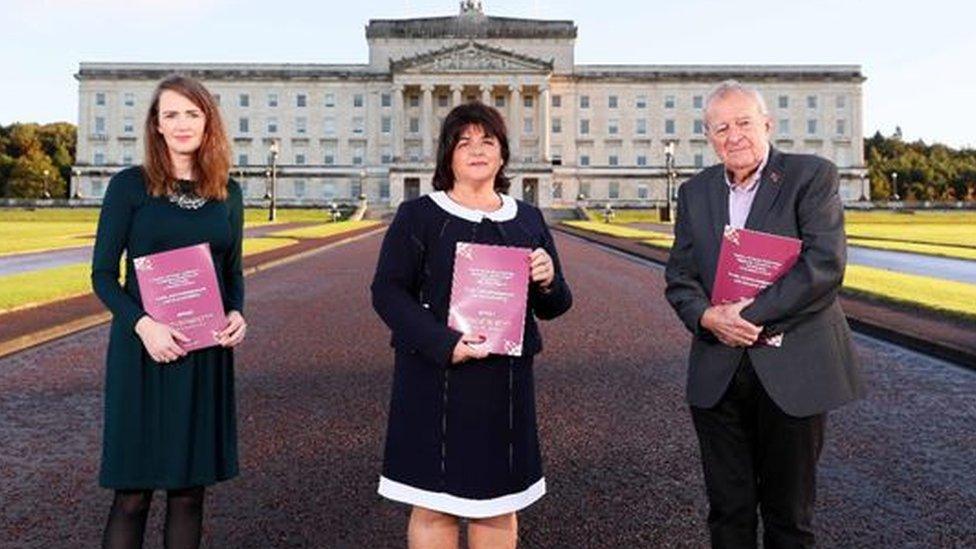
- Published26 January 2021

- Published26 January 2021
